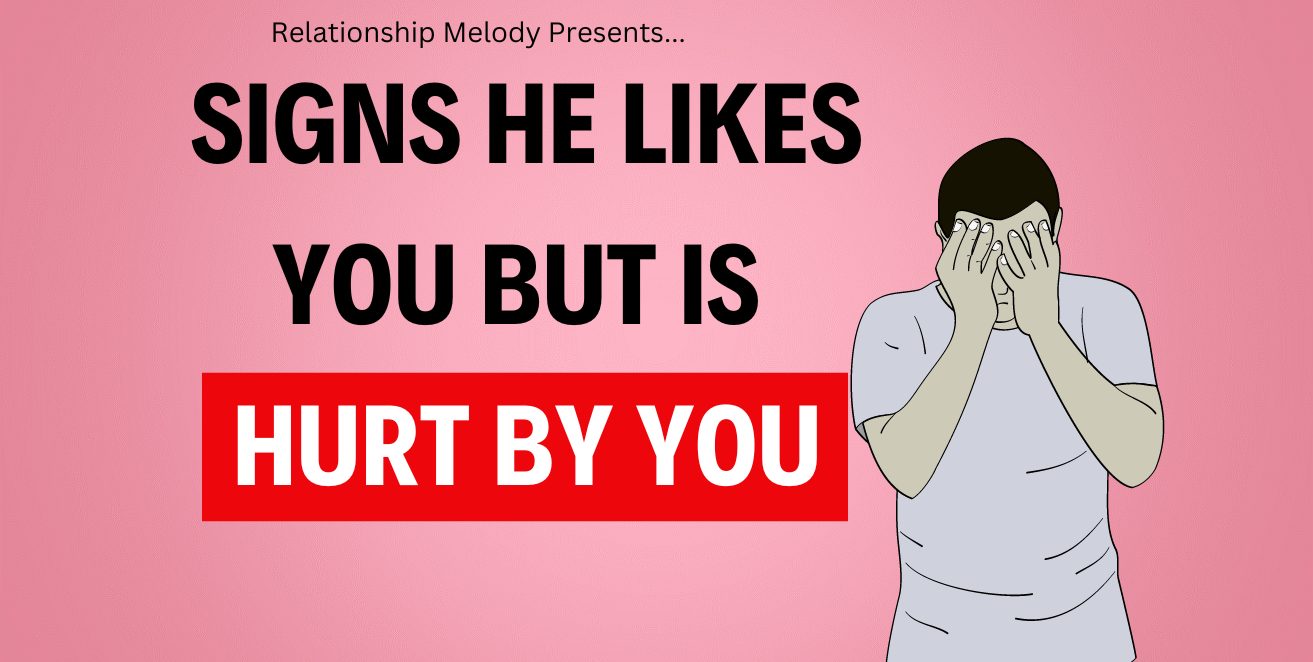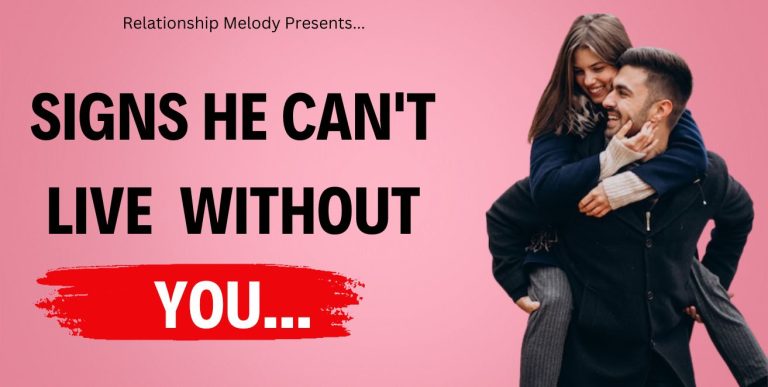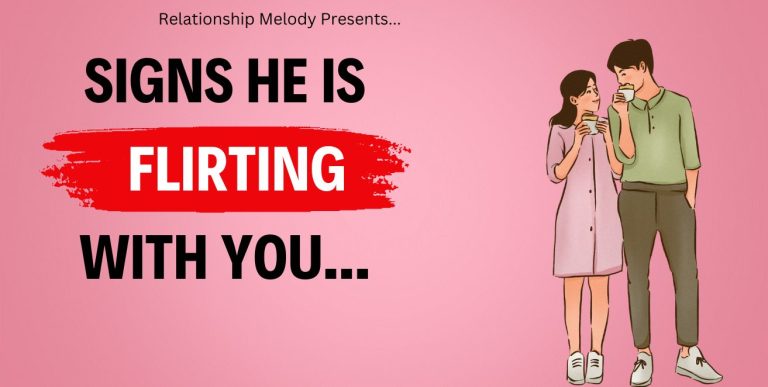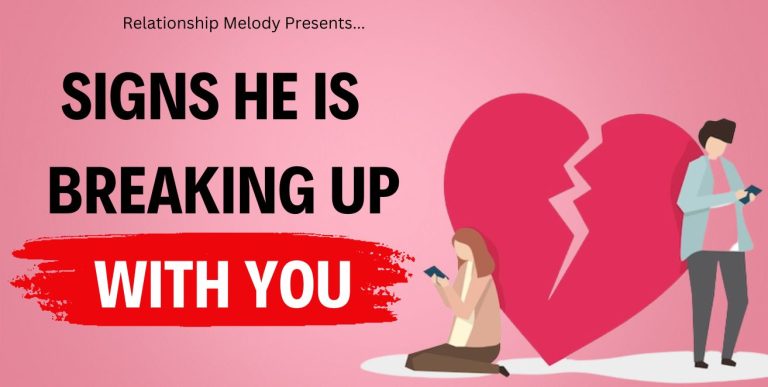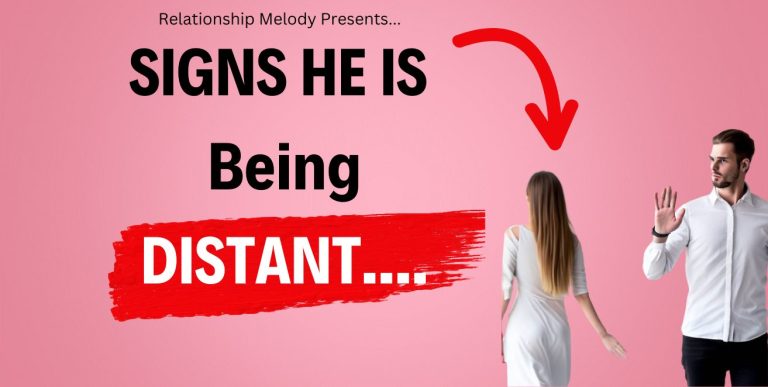25 Signs He Likes You but Is Hurt by You
Understanding someone’s feelings can be a complex task, especially when their emotions are influenced by experiences or current circumstances.
When it comes to relationships, it’s not uncommon for someone to harbor feelings of hurt or pain while also being attracted to another person.
In this blog post, we will explore 25 signs that indicate a man likes you but is simultaneously burdened by emotional wounds caused by your actions.
By recognizing these signs, you can gain insight into his emotional state and take steps to heal and nurture the connection between you.
25 Signs He Likes You but Is Hurt by You
These are 25 signs to know.
Sign #1: He Is Emotionally Unavailable To You
If you notice that he often shuts down emotionally or avoids discussing deeper topics, it could indicate that he likes you but is afraid of getting hurt.
His emotional unavailability may stem from past relationship traumas, making him hesitant to fully open up to you.
Sign #2: He Keeps His Guard Up
He maintains a defensive stance, creating a protective barrier between himself and potential emotional pain. This behavior is often rooted in experiences where he may have been hurt or betrayed, causing him to be cautious in opening his heart.
Sign #3: He Exhibits Hot and Cold Behavior
He displays inconsistent behavior, alternating between intense interest and sudden withdrawal. This inconsistency could indicate that he is struggling with his own conflicting emotions, torn between his feelings for you and his fear of getting hurt.
Sign #4: He Frequently Tests Your Loyalty
He may frequently test your loyalty or push boundaries to assess your commitment to him. This behavior can be attributed to his experiences where trust was broken, and he is now seeking reassurance that you won’t repeat those mistakes.
Sign #5: He Is Reluctant to Commit
He shows reluctance or hesitation when it comes to committing to a more serious relationship. Fear of vulnerability and potential heartbreak can cause him to be cautious about taking the next step.
Sign #6: He Prioritizes His Independence
He places a high value on his independence and personal space, often avoiding activities or situations that might compromise his freedom.
This behavior could stem from a fear of losing himself in a relationship or being emotionally dependent on someone else.
Sign #7: He Keeps His Past a Secret
He is guarded about his past, keeping important aspects of his life hidden from you. This secrecy may be a result of painful experiences that he hasn’t fully processed or is not yet ready to share.
Sign #8: He Demonstrates Passive-Aggressive Behavior
He occasionally displays passive-aggressive tendencies, indirectly expressing his frustrations or disappointments. This behavior may indicate that he is hurt by something you have done, but is unable to confront it directly.
Sign #9: He Struggles with Intimacy
He finds it challenging to establish and maintain emotional intimacy. His fear of vulnerability and potential rejection may make it difficult for him to fully engage in deep emotional connections.
Sign #10: He Displays Jealousy or Possessiveness
He exhibits signs of jealousy or possessiveness, becoming protective or territorial when it comes to your interactions with others. This behavior may stem from his own insecurities and fear of losing you.
Sign #11: He Maintains a Guarded Body Language
His body language often reflects a guarded and closed-off demeanor. Crossed arms, avoiding eye contact, or maintaining physical distance could be indications of his emotional pain and wariness.
Sign #12: He Struggles with Trust
He finds it challenging to trust you or anyone else due to experiences that have shattered his trust. Overcoming this hurdle requires patience and consistent efforts to rebuild trust.
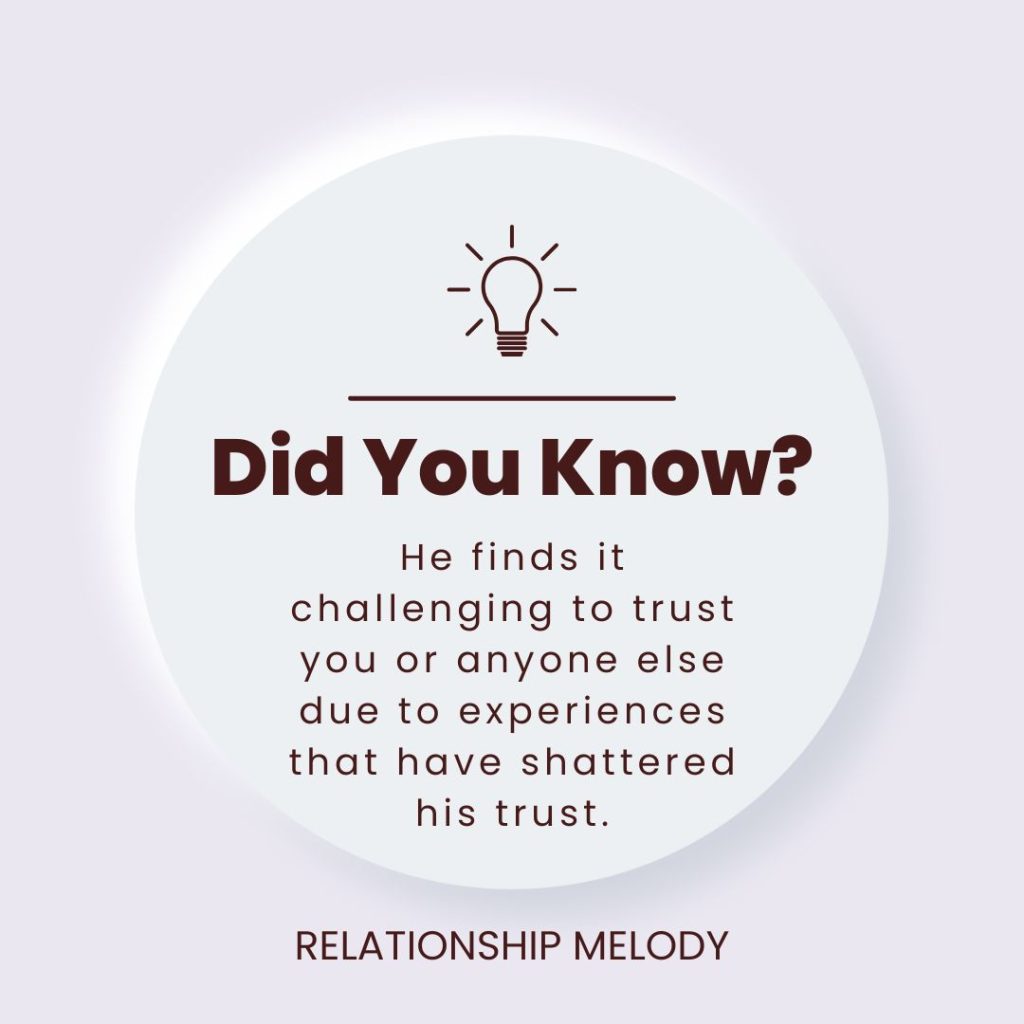
Sign #13: He Keeps You at Arm’s Length
He maintains a safe emotional distance, preventing you from getting too close. This behavior is often a defense mechanism to protect himself from potential emotional harm.
Sign #14: He Exhibits Self-Sabotaging Behaviors
He engages in self-sabotaging behaviors that hinder the progress of your relationship. These actions are driven by his fears and insecurities, causing him to create obstacles or push you away unintentionally.
Sign #15: He Struggles with Effective Communication
He finds it difficult to express his emotions or communicate his needs effectively. This struggle could be rooted in his fear of being misunderstood, rejected, or hurt.
Sign #16: He Demonstrates Excessive Self-Reliance
He relies heavily on self-reliance and avoids seeking support or assistance, even when it would be beneficial. This self-reliance could be a result of experiences where he felt let down or abandoned.
Sign #17: He Engages in Destructive Coping Mechanisms
He resorts to destructive coping mechanisms such as substance abuse, excessive work, or emotional withdrawal. These behaviors provide temporary relief from his emotional pain but hinder the growth of your relationship.
Sign #18: He Shows Signs of Depression or Anxiety
He exhibits symptoms of depression or anxiety, indicating that his emotional wounds are affecting his overall well-being. It is crucial to encourage him to seek professional help to address these underlying issues.
Sign #19: He Reacts Strongly to Triggers
He has strong emotional reactions to certain triggers, often disproportionate to the situation. These triggers may remind him of past traumas, causing him to experience heightened emotional distress.
Sign #20: He Avoids Vulnerability
He actively avoids situations that require vulnerability or emotional exposure. His fear of being hurt again leads him to put up emotional walls and prevents deeper connection and intimacy.
Sign #21: He Requires Reassurance
He seeks constant reassurance of your feelings for him and your commitment to the relationship. His need for reassurance arises from a place of insecurity and fear of rejection.
Sign #22: He Engages in Self-Isolation
He isolates himself emotionally or physically, withdrawing from social interactions and spending excessive time alone. This behavior serves as a protective mechanism, shielding him from potential emotional pain.
Sign #23: He Struggles with Forgiveness
He finds it challenging to forgive past mistakes or hurts, holding onto resentment or grudges. This struggle with forgiveness can hinder the growth of your relationship and perpetuate emotional pain.
Sign #24: He Expresses Frustration or Disappointment Indirectly
He may express his frustrations or disappointments indirectly, often through sarcasm, cynicism, or subtle remarks. This indirect communication style reflects his hesitancy to confront and address his feelings directly.
Sign #25: He Seeks Control as a Defense Mechanism
He exhibits controlling behavior as a defense mechanism to protect himself from potential hurt or rejection. This need for control can manifest in various aspects of your relationship, such as decision-making or managing your interactions.
Learn more: 25 Signs He Likes You but Is Scared To Tell You.
Conclusion
Recognizing the signs that someone likes you but is simultaneously hurt by you can help foster empathy, understanding, and ultimately, healing.
By acknowledging the emotional wounds they carry, you can take steps to nurture a supportive and compassionate connection. However, it’s important to note that healing requires mutual effort, patience, and effective communication.
Encouraging open dialogue and providing a safe space for vulnerability can facilitate the healing process, allowing both parties to grow individually and strengthen their bond.
Remember, relationships thrive when both partners actively work together to heal and build a healthier, more resilient connection.
Liked Our Article?
Our Patreon link: https://www.patreon.com/RelationshipMelody

Welcome to Relationship Melody! Our website is dedicated to all things on relationships, dating, and love! We are passionate about helping you navigate the ups and downs of love, and our goal is to provide you with valuable insights and information that will make your journey toward a fulfilling relationship smoother and more enjoyable.

